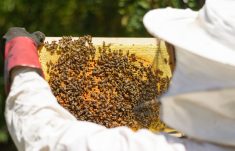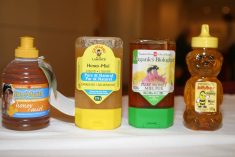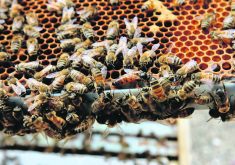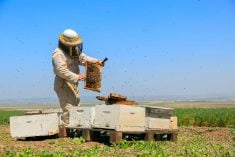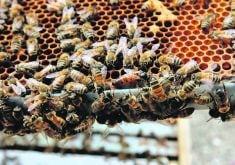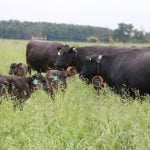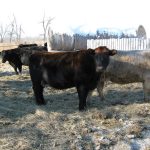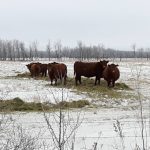Canadian Foodgrains Bank representative and hobby beekeeper Gordon Janzen wants to raise money for food aid, and he’s hoping the rest of the honey sector will help him do it.
Janzen is spearheading a community growing project to fundraise for hunger relief and is inviting other beekeepers to join him.
“Why should all the grain farmers have all the fun?” said Janzen, who is the food aid charity’s regional representative for Manitoba and northwestern Ontario.
Read Also
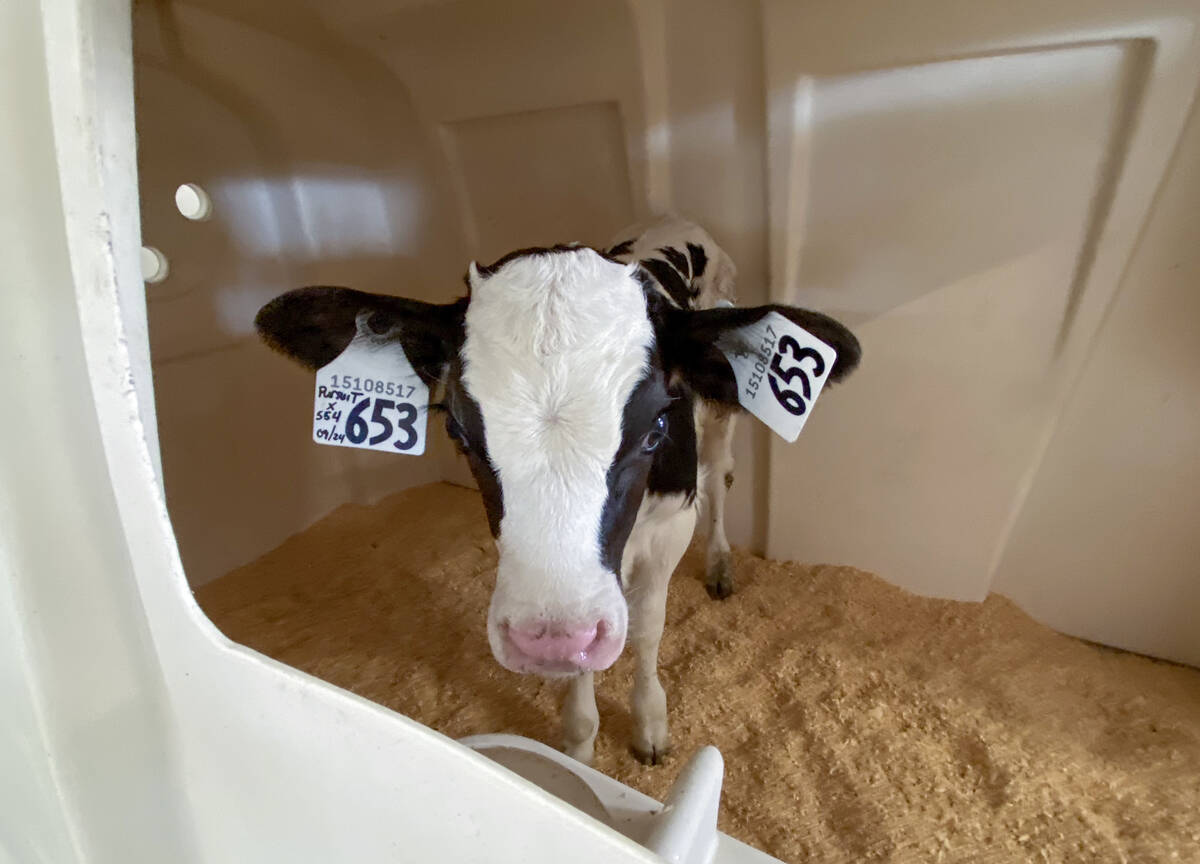
Plan toward better calves for healthier, more profitable dairy herds
Improved colostrum management, nutrition, and prevention-first health calf programs are boosting herd profitability, efficiency, and milk production.
Why it matters: Grain production is typically the heart of Canadian Foodgrains Bank growing projects but Gordon Janzen thinks honey producers could create their own project niche.
Janzen has kept beehives in his Winnipeg backyard for about nine years. Urban beekeeping is legal in Manitoba’s capital and his hives are registered with the city.
Instead of feasting on alfalfa and canola blossoms like rural bees, these bees find their food via clover, basswood, apple trees and other flowers in the neighbourhood. The result is a lighter-coloured honey, some of which he sells through a small business, Gordon’s Backyard Honey.
In his role with the Canadian Foodgrains bank, Janzen visits many farmer-led community growing projects across Manitoba every year. These projects generally involve farmers and community businesses joining forces to donate time, inputs and the use of land to grow a crop, with proceeds donated to the Canadian Foodgrains Bank after sale.
Some community groups also host fundraisers like auctions.
“They’re doing lots of creative fundraising things for Canadian Foodgrains Bank, and the proceeds get used internationally to address hunger,” Janzen said. “I believe in that.”
But farming in his area of responsibility is more than grain and oilseeds, and he pondered how to get other sectors involved, particularly beekeepers, given his ties to that industry.
Janzen started by printing a pamphlet. He tapped the shoulders of other hobbyists and commercial beekeepers in the province and asked if they’d consider dedicating a portion of their production to the foodgrains bank. The organization also set up a dedicated donation page for beekeepers.
Last year, seven beekeepers raised nearly $17,000.
At this point, there’s no formal structure to the beekeepers’ growing project. Janzen is now asking beekeepers from across Canada— commercial or hobby — to consider joining in.
For more information, they can email Janzen at [email protected].




